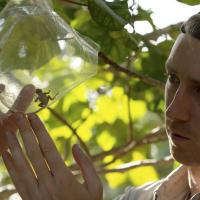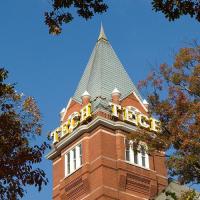4 min read
Research from Georgia Tech reveals thousands of browser extensions pose significant privacy risks by extracting sensitive user data from web pages, highlighting a need for stricter privacy measures and better enforcement.
1 min read
The School of Psychology assistant professor was named one of the publication’s top 35 innovators under 35 for her work on language in the human brain and artificial intelligence.
5 min read
Seven students from Georgia universities worked on dynamic economic development projects this summer.
7 min read
Lieuwen enters the role of interim EVPR with plans to focus on research security and operational excellence and to strengthen the Institute’s ties to Georgia and the Southeast.
1 min read
New research shows that an effort to improve wintertime air quality in Fairbanks, Alaska may not be as effective as intended.
3 min read
Stroud is being recognized for his groundbreaking research as an integrative evolutionary ecologist.
5 min read
Learn more about how Georgia Tech's Center for Urban Studies aims to "be at the heart of how urban studies scholarship can inform practice in urban management."
5 min read
The Space Research Institute is the hub of all things space-related at Georgia Tech, and it includes three core centers contribute distinct interdisciplinary perspectives to space exploration.
2 min read
The Institute for Matter and Systems (IMS) has received $700,000 in funding from the National Science Foundation (NSF) for two education and outreach programs.
2 min read
Executive search firm WittKieffer will host several town halls to gather input from the Georgia Tech community about the EVPR selection process.














